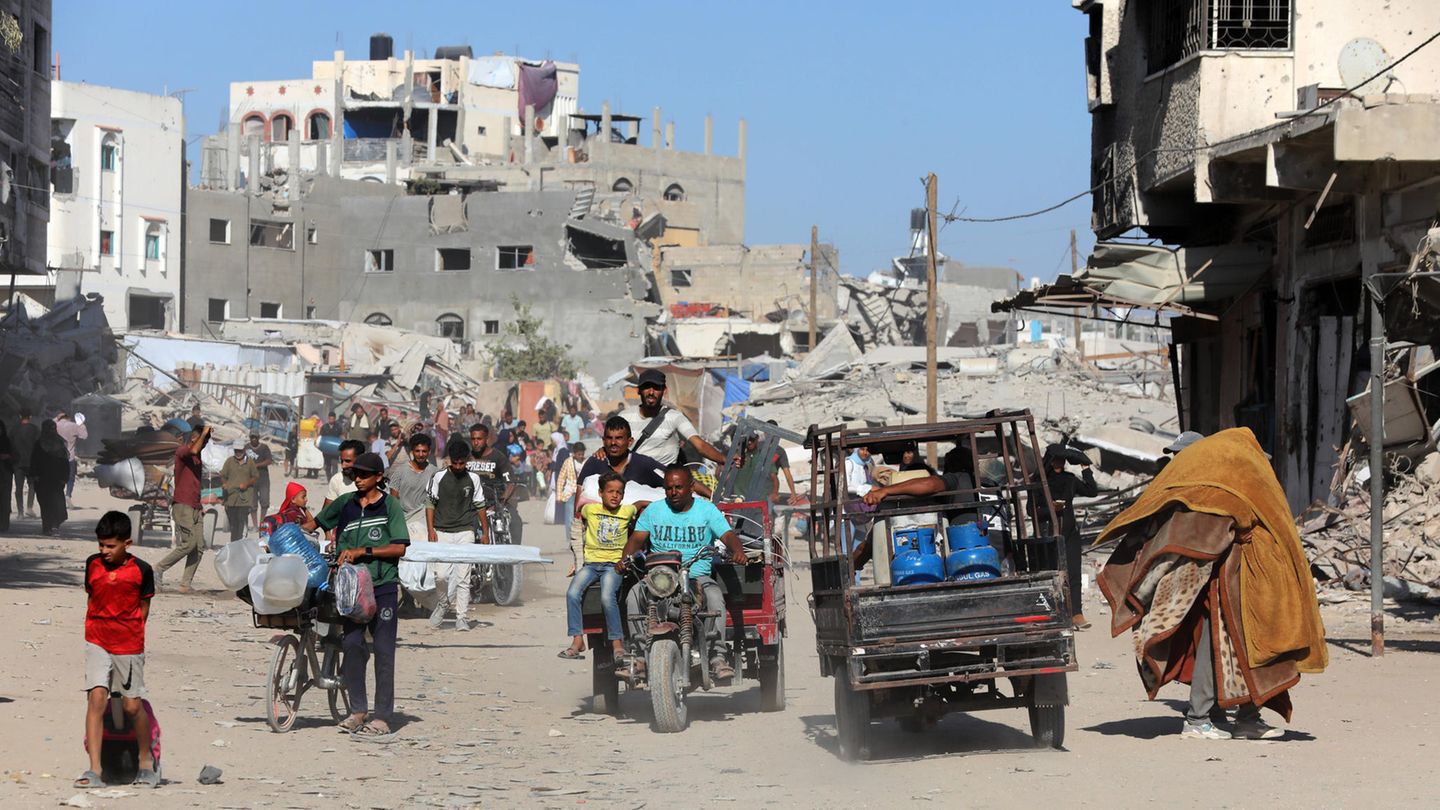interview
The head of investment at Oddo BHF explains what impact the tensions in the Middle East and Iran’s threat of a major attack on Israel are having on the markets.

This is original content from the Capital brand. This article will be available for ten days on stern.de. After that, you will find it exclusively on capital.de. Capital, like the star to RTL Germany.
Mr. Viebig, for days the world has been expecting a major attack by Iran on Israel, but nothing has happened yet. Now the price of oil has risen slightly. How is that connected?
The swing in oil prices is not particularly large, but the markets as a whole are very fearful. The “fear and greed” index is currently at 22, which is quite low. 0 would mean extreme fear, 50 is neutral. This fear is not only related to the Middle East, but also to fears of recession and high valuations on the market, which are taking place in this crisis-ridden environment.
So the markets fear a major crisis? After all, there was a stock market crash last week.
On August 5, we really had an absolute crisis, but this was mainly due to the so-called yen carry trades. Most market observers currently agree that the economic impact of the war in the Middle East will be limited. OPEC was relatively strong during the oil crises in the 1970s. Both the 1973 and 1979 crises affected the global economy because oil became scarce and the price of oil rose very, very sharply. Of course, various scenarios can also occur now, for example attacks on military bases in the USA or attacks on oil infrastructure like in 2019. But extreme effects are not to be expected.

Why not?
The situation today is different from the 1970s. For one thing, the western industrialized countries are now much less dependent on oil. For another, the US is now the largest oil producer in the world, which is very important macroeconomically and makes it less vulnerable to disruptions. I think even if something terrible were to happen and there was an attack by Iran on Israel, it would probably have a relatively small impact on the world economy. The only exception would be if the war disrupted trade routes.
Most shipping companies are already avoiding the route through the Red Sea via the Suez Canal because of attacks by the Houthi rebels in Yemen, Iran’s allies and the Palestinian Hamas. Instead, the ships are now sailing around Africa.
Exactly, there is an alternative route in the Red Sea. It is longer and more expensive, but it is included in the market price. However, oil is mainly exported via the Strait of Hormuz on the Persian Gulf between Iran and Oman. 21 million barrels of oil are transported along this route every day from the oil ports of Iraq, Bahrain, Kuwait, Qatar, the United Arab Emirates and Saudi Arabia, or about a fifth of global oil consumption, which is an incredible amount – and there is no other route for it.
If there were disruptions here, the price of oil would rise sharply.
Yes, if this scenario were to occur, it would be a macroeconomic shock and that is what the financial markets are afraid of. Other options are very limited. The USA could increase its oil production, other energy sources could be used, but all of this would take a long time. At the moment, however, this scenario is still very unlikely because the Americans are behaving skilfully. On the one hand, they are moving heavy military equipment to the region as a deterrent, and on the other hand, they are trying to engage in diplomatic negotiations.
Nevertheless, two major powers, the USA and Iran, are dangerously close to each other. A spiral of escalation is looming. Does this really have so little influence?
As much human suffering as this conflict causes, economically speaking it is “only” a military conflict and, like the Ukraine war, has little impact on the development of the global economy. Both Iran and Israel are relatively small economies, and Iran in particular is a very poor country apart from its oil reserves. The global economic effects of a possible attack by Iran and the impact on the financial markets would therefore be very limited. In the short term, volatility may increase because investors become afraid. But after just a few weeks, market participants usually realize that the macroeconomic effects of regionally limited conflicts are small as long as supply chains continue to function.
So investors should just keep their feet still?
In principle, you should only invest money in stocks for a period of at least five years. Of course, there can be short-term turbulence in the market, but if you invest money in stocks for the long term, you significantly reduce the probability of loss.
Source: Stern




